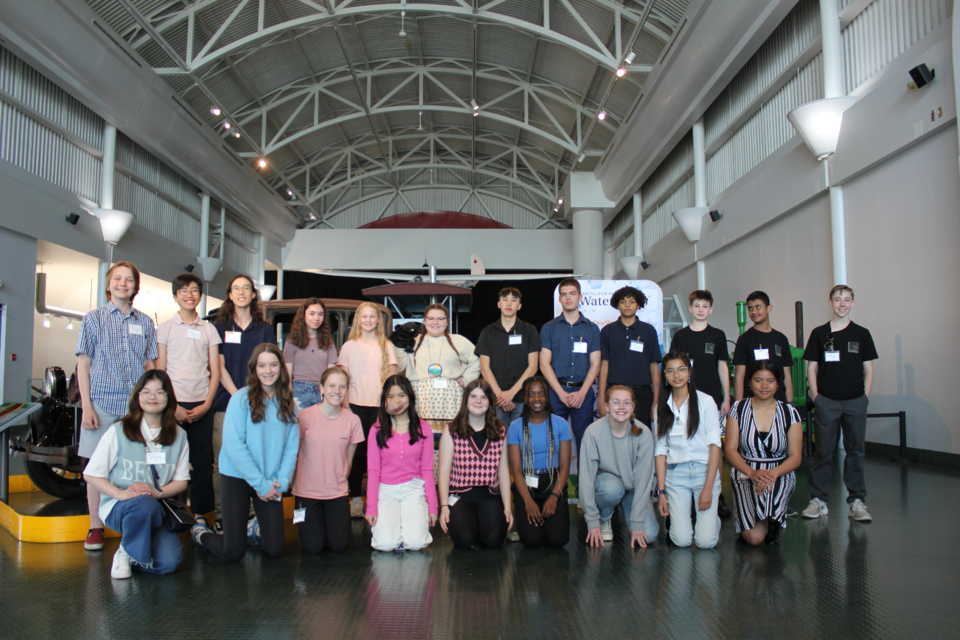BONNYVILLE - Bonnyville Centralized High School student Esther Yang placed fourth in the 2024 Caring for our Watersheds contest with her Waste to Wash project.
The event, hosted by the Battle River Watershed Alliance, was held in Wetaskiwin at the Reynolds-Alberta Museum on May 13.
A total of 598 students participated, submitting their proposals that answered the question “What can you do to improve your watershed?”
Students researched the watersheds in their area, identified an environmental concern, and were to propose a realistic solution.
Esther Yang’s project Waste to Wash, focused on recycling used cooking oil and making soap out of it.
Yang’s teacher, Jennifer Vermillion, introduced the contest and allocated class time for projects.
“Probably one of the most difficult things was finding a soap recipe that actually worked... but she put in the research and problem solved that,” says Vermillion. “It just requires water and sodium hydroxide.
The finalists not only received a $12,000 cash prize, but a matching amount for their school, and an additional $10,000, provided by sponsor Nutrien, in order to help implement the contestant's ideas.
Kiara Abma, environmental program co-ordinator for the Battle River Watershed Alliance, says “these kids had hands-on mentorship in the process of creating their projects.” Abma relays that Sarah Skinner, watershed programs manager, gave the kids individualized feedback along the way.
Abma shares how impressed she was with the contestants.
“It was very inspiring to hear what these kids had to say. I just came out of university where we were thinking about these meta issues, and then you come out and these kids are thinking about them too. They’re thinking about the different ways they can make a difference to their local environment... It’s cool to see how engaged they are.”
The kids must also include a budget in their projects, and Abma says this helps them understand how feasible these projects can be.
“They make it more tangible for themselves. That’s kind of the point, for kids to come to understand how achievable it can be to make a difference.”
The finals were judged by a lineup from Bow River Basin Council, the Government of Alberta, North Saskatchewan Watershed Alliance, Nutrien, a consulting firm, and a watershed educator.
This international program operates in Canada, the United States, and Argentina, and has been running in Canada since 2007. It started through the Battle River Watershed Alliance with support from the Battle River Community Foundation in Camrose.
“Watersheds are a very tangible way for people to understand the interconnectedness of their environment... It’s really important for people to see that there is that connection and be able to see that there is a local aspect to – that they can make a difference in their own watershed, which will in turn has an impact further downstream,” says Abma.
Caring for Our Watersheds shared their gratitude for the volunteer support of teachers, students, and community members. Anyone interested in volunteering can visit caringforourwatersheds.com or contact Sarah Skinner at [email protected]
As for putting words into action, Vermillion reports that, “We have some cooking oil collected already, so the first week of June at lunch we’re going to be making soap with some students.”



